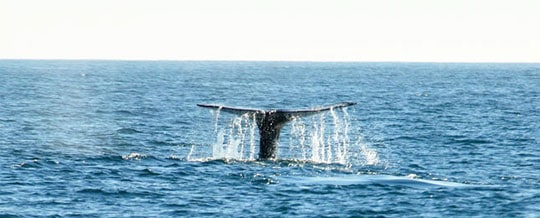Enviromental Impact on Whales
It’s difficult to separate the environmental impact on whales without mentioning that humans are at the root cause. Harmful toxins have affected every square mile of the earth’s oceans, and the implications are the same for both sea creatures and humans alike. Human activities, such as over-fishing, global warming and greenhouse gases, are affecting the world in ways we can’t imagine. It’s estimated that 40 percent of the earth’s marine ecosystems are toxic.
What may be even more disturbing is the rise in illnesses that marine mammals are experiencing. These illnesses include digestive system complications, liver disease, damage to the endocrine system, reproductive complications, developmental issues and cancer and more. A majority of scientists across the world believe these sea mammal diseases are caused by pollutants and toxins in the earth’s oceans.
Marine Mammals – Top the Food Chain
Marine mammals are at the top of sea’s food chain. As a result, the toxins in their bodies have accumulated at a rapid rate. These toxins lodge in the fatty tissues and breast milk of many marine mammals. Small fish consume plankton. Larger fish eat the smaller fish—and the process repeats up the chain until it reaches marine mammals and humans. It’s the high levels of toxins in whales, dolphins and other marine animals that have caused so many diseases in these magnificent creatures of the sea. Marine mammals that are infected include the bottlenose dolphin, orca, Risso’s dolphin, Steller’s sea eagle, gray seal and the common dolphin.
A Message to Mankind
The health decline of so many whales and sea mammals sends a message that mankind should heed. We’re being shown our future unless we find a way to change and live at peace with the world. The earth’s oceans have become contaminated, and there seems to be no end in sight. Harmful toxins spread by wind, rain and the ocean’s currents. And the sad truth is that even if the world stopped polluting tomorrow, it would take generations, maybe even centuries, for the environmental and human impact on whales and sea mammals to subside.
[callout font_size=”13px” style=”fire”]
“It is from the progeny of this parent cell that we all take our looks; we still share genes around, and the resemblance of the enzymes of grasses to those of whales is in fact a family resemblance. (Lewis Thomas – American Physician and Writer, 1913-1993)”
[/callout]

